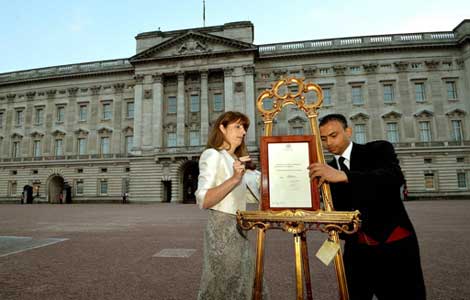Military transparency comes with trust
Updated: 2013-07-23 07:31
By Zhou Bo (China Daily)
|
||||||||
When China published its defense white paper, The Diversified Employment of China's Armed Forces in April, some Western critics lauded the efforts but claimed that China hadn't put much meat on the bone and the paper was short on details.
This raises the question: To what extent does a country need to be transparent about its military in order to build trust with other countries?
The answer to this is: It depends on whom you are dealing with.
Transparency is based on trust. You are unlikely to make a "confession" when you are not sure the listeners are your friends or, in the worst case, if they are adversaries or even potential enemies. While the West holds that information such as weapons systems, the break-down of military expenditure and listing of R&D efforts are essential for transparency, China stresses that there is no absolute transparency - as Prism whistleblower Edward Snowden seems to have proven. Otherwise why would the US monitor even its allies? Transparency only comes as a result of trust.
Transparency also has a lot to do with military strength. Underdeveloped countries keep more things as military secrets, while the militarily strong ones are not shy about showing off their muscles. While the West believes that China is strong enough not to be attacked by anyone, China is still concerned about a number of worst-case scenarios where external forces could be involved in either China's internal affairs such as Taiwan, or its maritime territorial disputes with other countries. China believes that there is still a gap between its strength and that of the US-led Western powers. Its objective, as laid out in the defense white paper, is to achieve military modernization by mid-century.
Transparency is also dependent on strategic equilibrium. During the Cold War, strategic arms reduction talks took place between the United States and the Soviet Union, only because both sides believed that their nuclear warheads were more than enough and their strategic equilibrium would not be jeopardized if they reduced the number of warheads. But China doesn't have such a strategic equilibrium with the US.
So why has China published a defense white paper biennially since 1998? Such regularity is rare even among major powers. The answer is its growing confidence in its comprehensive national strength, including military strength.
Recent years have seen China's State media much more willing to unlock China's "military secrets", from the test flight of the J-20 and J-31 stealth fighters to successful ground-based mid-course anti-missile tests. The Chinese military has also stepped up its public relations, holding regular media briefings since 2008 and setting up a Ministry of Defense website in English in 2009. Foreign delegations are also invited to observe military exercises. In fact, China's military "warehouse", apart from the Liaoning aircraft carrier and nuclear submarines, has been opened to foreign military visitors.
China is a peace-loving country that adheres to a peaceful development path, and the more confident China is of its military strength and the good intentions of others, the more transparent it will be.
Therefore for the Chinese military to become more transparent, the West needs to convince China that its intentions are not ill and, above all, build greater trust with China.
Zhou Bo is an honorary fellow of the Center on China-American Defense Relations, Academy of Military Science. www.chinausfocus.com
(China Daily USA 07/17/2013 page11)
Most Viewed
Editor's Picks

|

|

|

|

|

|
Today's Top News
Germany to probe spy services' ties with US
Snowden hopes to leave airport by Wednesday
Quake in NW China kills 89, injures 700
US blacks, whites split on Zimmerman verdict: poll
Kissinger and Jiang see bright future for relations
China sees no major forex withdrawal: regulator
Business holds up for Minmetals arm
Beijing knife attack leaves one dead
US Weekly

|

|














